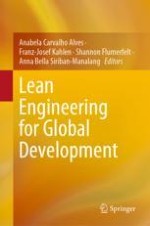2019 | OriginalPaper | Buchkapitel
The Effect of Lean Practices on Environmental Performance: An Empirical Study
verfasst von : Marcos Dieste, Roberto Panizzolo
Erschienen in: Lean Engineering for Global Development
Aktivieren Sie unsere intelligente Suche, um passende Fachinhalte oder Patente zu finden.
Wählen Sie Textabschnitte aus um mit Künstlicher Intelligenz passenden Patente zu finden. powered by
Markieren Sie Textabschnitte, um KI-gestützt weitere passende Inhalte zu finden. powered by
